Large numbers of Americans in many different religious groups express concern about fewer people getting married.
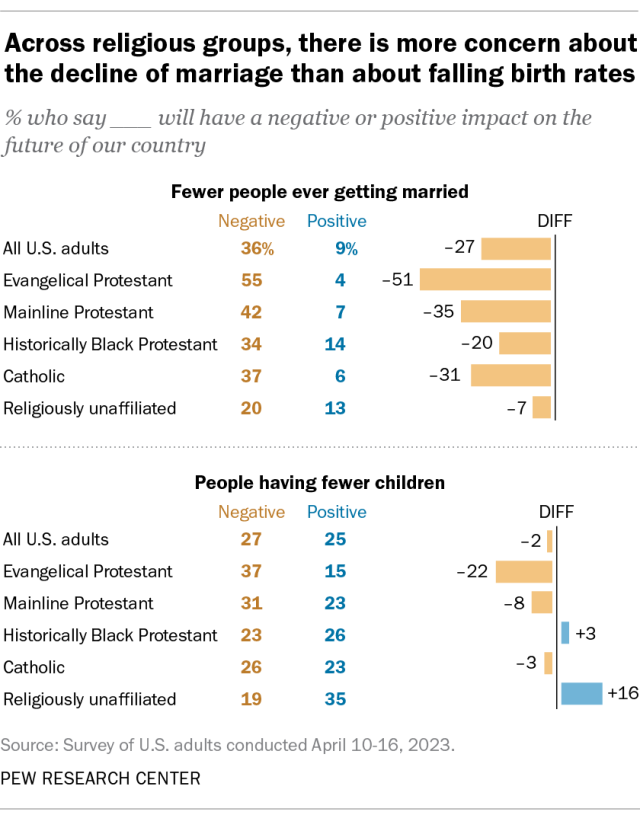
By comparison, there is much less concern about people having fewer children. In fact, Catholics and members of the historically Black Protestant tradition are as likely to say that people having fewer children is positive for society as to say it is negative.
These findings are drawn from a new Pew Research Center survey that also examines Americans’ perceptions about what makes for a fulfilling life. For people in all of America’s large religious groups, having an enjoyable job and good friends rank above being married and having children.
Pew Research Center conducted this analysis to better understand how people in the nation’s largest religious groups view trends in marriage, fertility and family life.
This analysis is based on a survey of 5,073 U.S. adults conducted April 10-16, 2023. Everyone who took part is a member of the Center’s American Trends Panel (ATP), an online survey panel that is recruited through national, random sampling of residential addresses. Address-based sampling ensures that nearly all U.S. adults have a chance of selection. The survey is weighted to be representative of the U.S. adult population by gender, race, ethnicity, partisan affiliation, education and other categories. Read more about the ATP’s methodology.
Here are the questions used for this analysis, along with responses, and the survey methodology.
Religion and views about the decline in marriage
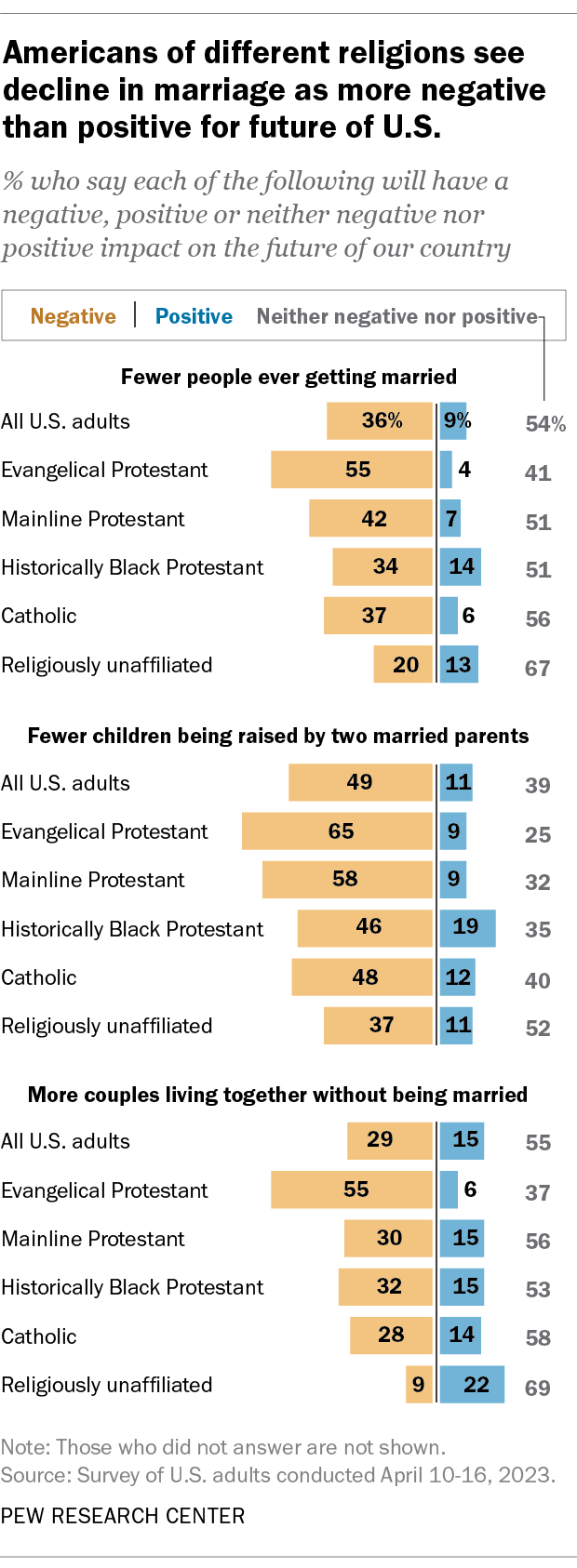
In recent decades, U.S. adults have been delaying marriage or increasingly forgoing it altogether, according to Center analysis of U.S. Census Bureau data.
Evangelical Protestants express the most concern about the decline of marriage in the United States: 55% say that fewer people ever getting married will have a negative impact on the future of the U.S., while just 4% say it will have a positive impact.
But evangelicals are far from alone in taking a negative view of a decline in marriage:
- 42% of mainline Protestants say fewer people ever getting married will have a negative impact on the future of the country, versus just 7% who say this will be positive.
- 37% of Catholics say a decline in marriage will be negative, while just 6% say it will be positive.
- 34% of people in the historically Black Protestant tradition think fewer marriages will be bad for society, versus 14% who say this will be good.
- 20% of religiously unaffiliated adults say a decline of marriage will be negative, compared with 13% who say it will be positive.
At the same time, large numbers in every religious group take a neutral view, saying that fewer people getting married is neither positive nor negative for society.
Concern about the decline of marriage in the U.S. appears in other questions in the Center’s new survey. For example, by a margin of 4-1, Catholics say it will be more negative than positive if fewer children are raised by two married parents (48% vs. 12%).
And on a question asking about more couples living together without being married, the balance of opinion is again more negative than positive in most religious groups. Religiously unaffiliated adults – those who say they are atheist, agnostic or religiously “nothing in particular” – are the only exception.
The survey included respondents of all religious backgrounds, including Jews, Muslims, Buddhists and Hindus. But there are not enough respondents from these smaller groups to report on their answers separately.
Religion and views about the decline in childbearing
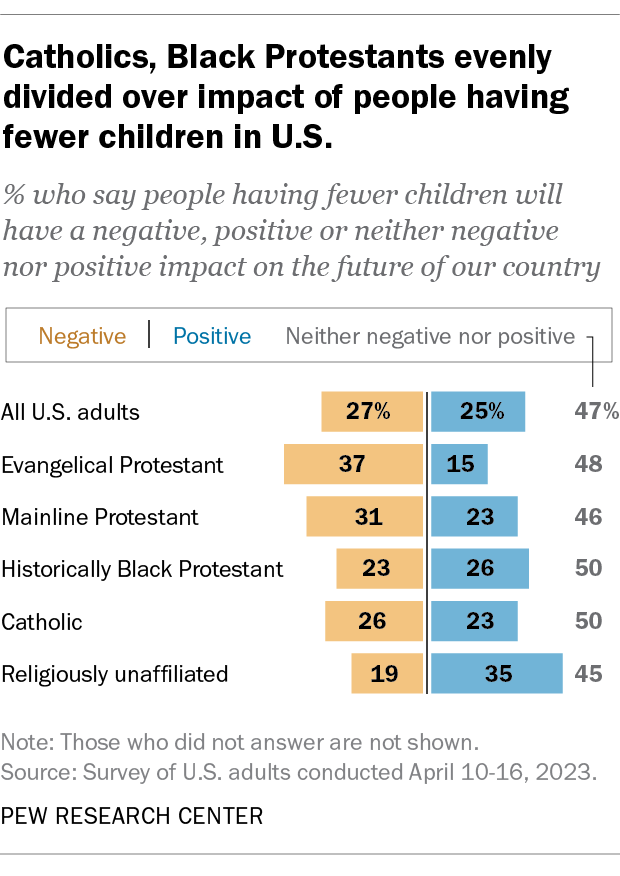
Across all religious categories that can be analyzed in the survey, there is less concern about a decline in childbearing than about a decline in marriage.
For example, members of the historically Black Protestant tradition and Catholics are evenly divided about the impact of people having fewer children. In each group, the share who say people having fewer children will be a good thing is about equal to the share saying this will be a bad thing.
Among religious “nones,” far more say people having fewer children is positive for society (35%) than negative (19%).
On balance, evangelical Protestants and mainline Protestants lean negative in their attitudes about people having fewer children. Still, they do so by a much narrower margin compared with their views about fewer people getting married.
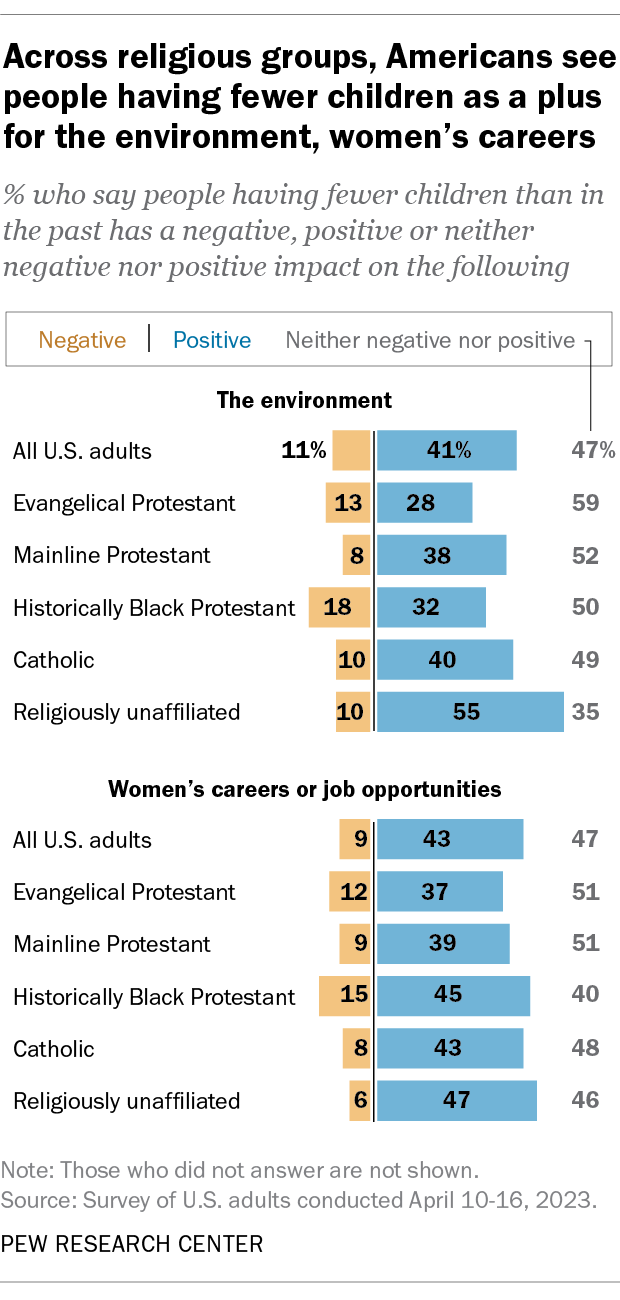
Pew Research Center analysis of U.S. Census data shows that compared with their counterparts in the 1970s, women today have fewer children.
While attitudes about the decline in childbearing vary by religion, people across religious groups say having fewer children will be good for the environment and for women’s careers.
Even evangelicals and mainline Protestants – the two groups who view having fewer children as more negative than positive – say the impact on the environment and women’s careers will be more positive than negative if people have fewer children.
At the same time, all religious groups acknowledge that fewer children could cause problems for the economy and the Social Security system. Evangelical Protestants and mainline Protestants are especially negative in their views about how having fewer children would affect the economy and Social Security.
Evangelicals also see the impact of fewer children as more negative than positive when it comes to the ability of family members to support each other. But members of the historically Black Protestant tradition, Catholics and religiously unaffiliated Americans aren’t so sure. In all three of these groups, the balance of opinion favors the view that having fewer children is positive for families’ ability to support each other.
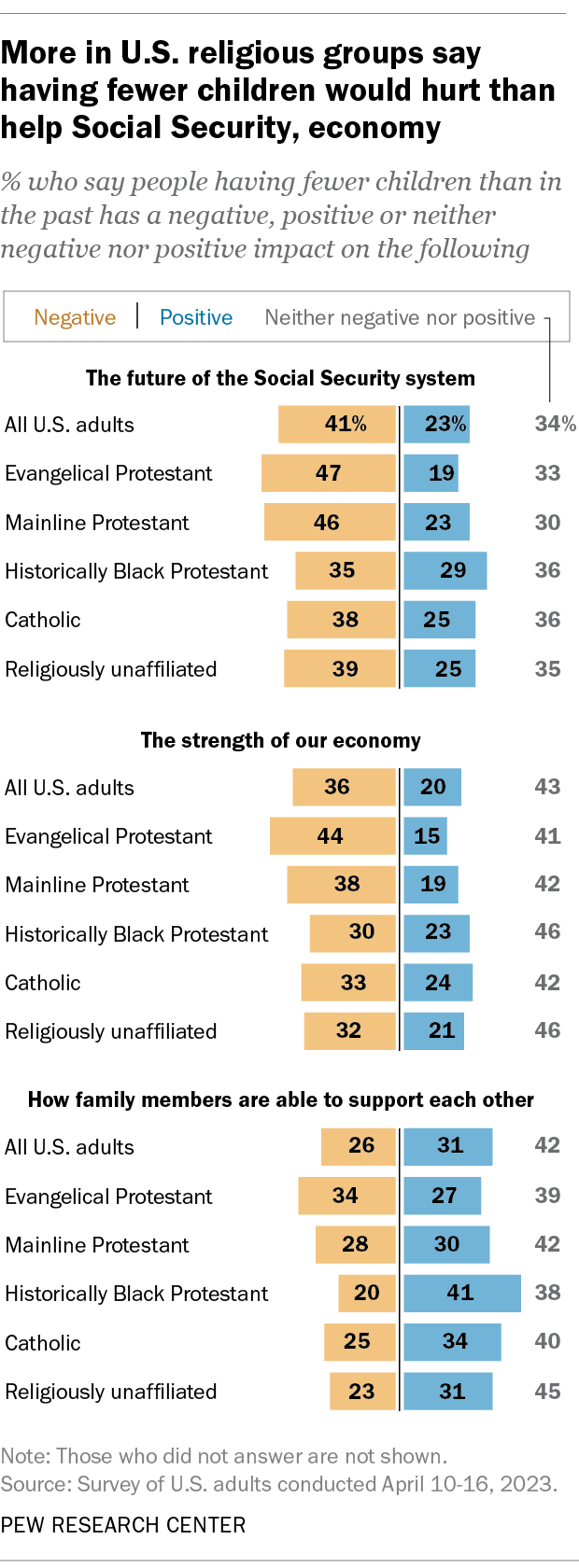
Religion and views about what makes for a fulfilling life
The survey also asked Americans how important a variety of things are for people to live a fulfilling life. In every religious group analyzed, two-thirds or more say having a job or career they enjoy is extremely or very important for people to live a fulfilling life. And in most religious groups, majorities say having close friends is key to living a fulfilling life.
By comparison, having children and being married ranks lower among all religious groups. For example, roughly three-in-ten adults in the country’s largest Christian groups say having children is extremely or very important to living a fulfilling life, and just 14% of religious “nones” say this.
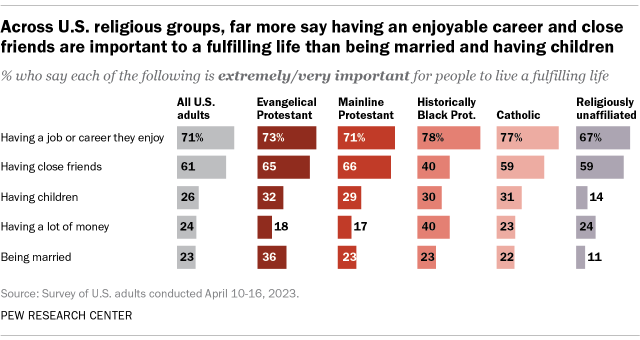
The survey on American attitudes about the modern family was conducted April 10-16, 2023, among 5,073 participants in Pew Research Center’s American Trends Panel (ATP). The Center’s report “Public Has Mixed Views on the Modern American Family” contains a complete summary of the survey’s findings, including discussion of additional questions about the acceptability of different kinds of family arrangements.
Note: Here are the questions used for this analysis, along with responses, and the survey methodology.
